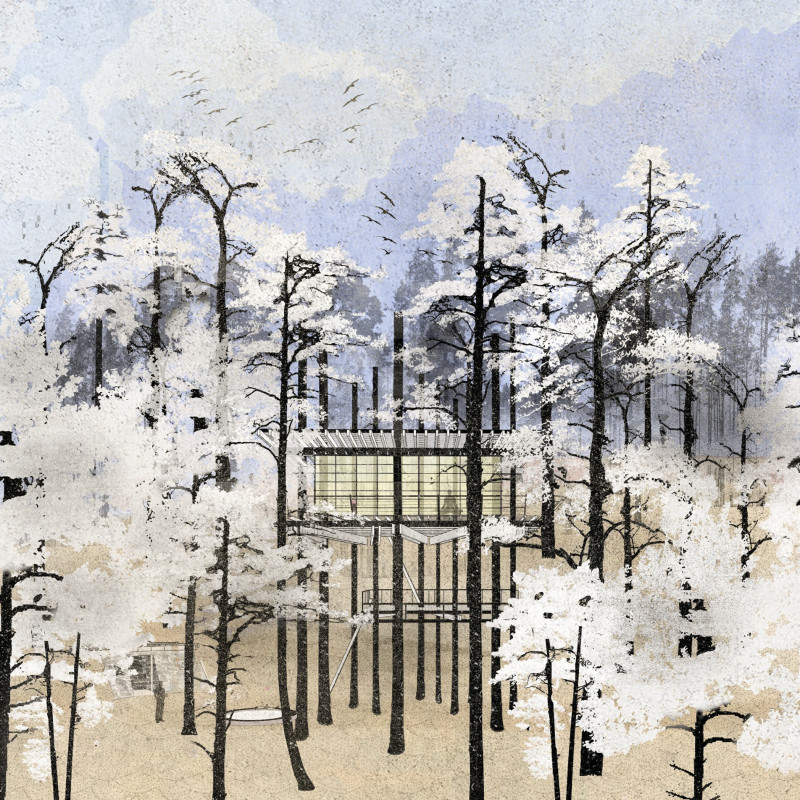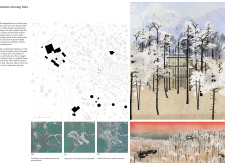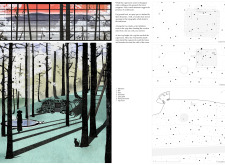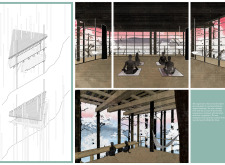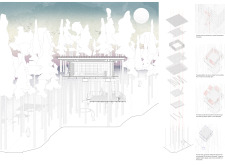5 key facts about this project
In the Vale de Moses, an architectural solution integrates human space with the natural landscape. Designed as a yoga house, it draws inspiration from the memory of fourteen pine trees that once thrived in the area. Their absence informs the design concept, which emphasizes restoration and a strong connection to nature, providing a tranquil space for reflection and practice.
Architecture Concept
The focus of the design is on restoration and environmental integration. The yoga house consists of three elevated platforms that fit among the existing tree trunks. This heightens the relationship between the structure and its surroundings, allowing users to experience nature more fully during their yoga sessions.
Functional Layout
At ground level, the design features essential elements like a well, wooden stairs, and an opening that leads to a bathroom. Each of these components is carefully arranged to promote openness and interaction with the natural environment. As users move to the first platform, they enter areas for cooking, eating, and resting, which encourages a fluid transition through the space and enhances the connection with the outdoors.
Integration with Nature
On the upper level, the yoga space uses light and air to build a connection with the surrounding landscape. Inside, natural elements such as leaves and branches become part of the walls, blending the indoor experience with the outdoor environment. This design approach strengthens the relationship between the space and the natural world, making it an integral part of the experience.
Sustainability Considerations
Sustainability is a vital aspect of the design, with the roof collecting rainwater that flows into the well below. An irrigation system channels additional water from the nearby mountain. This mindful approach to resource management supports the overall goals of the project, creating a balance between human use and the environment.
The design's organization reflects a commitment to connecting its users with the landscape. From the upper platform, natural elements frame the experience, as branches sway gently in the breeze, inviting both mindfulness and connection to the surroundings.


